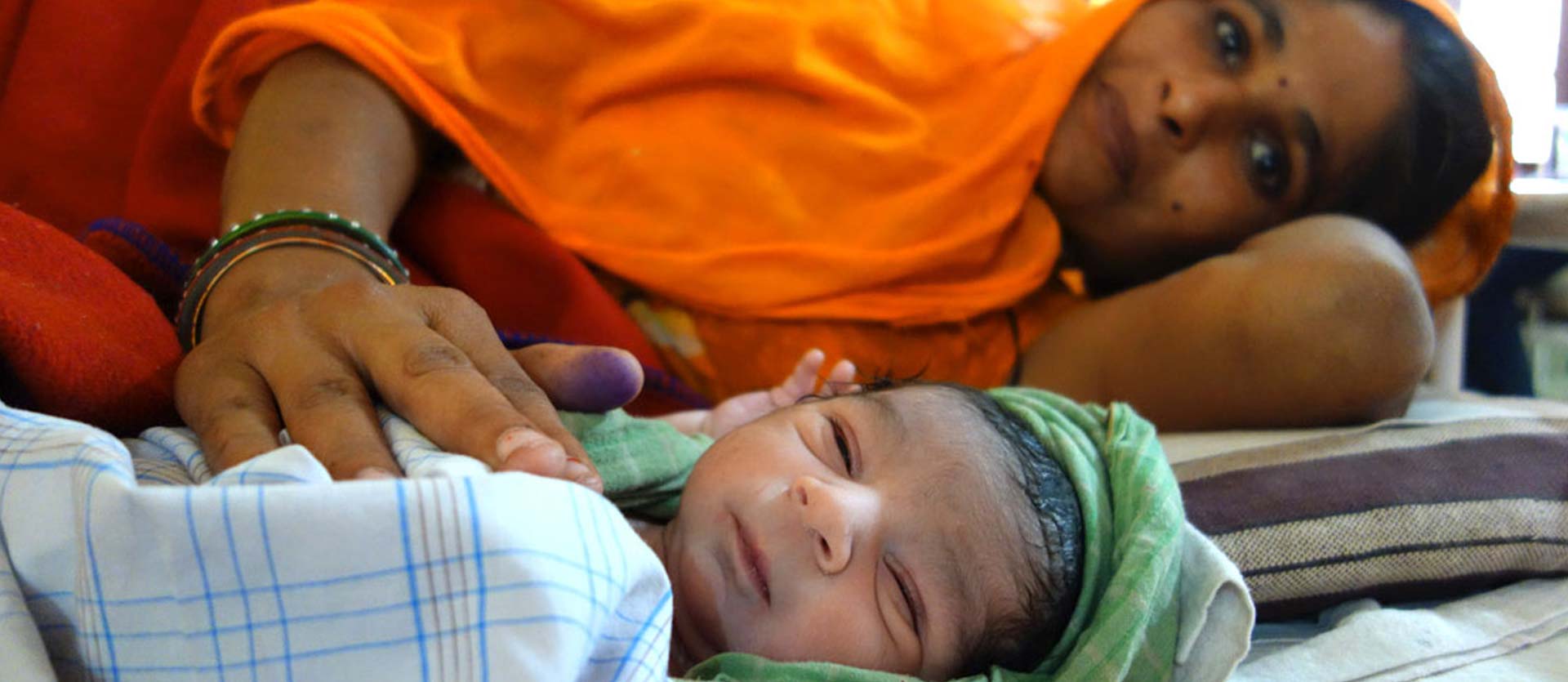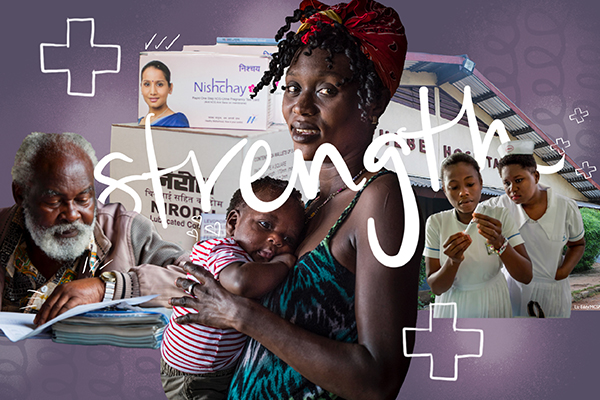![]()
Health Systems Strengthening & Equity
USAID invests in health systems strengthening (HSS) to promote country ownership and sustainability, scale-up solutions, and promote greater efficiencies in investments. Sustained improvements to reproductive, maternal, newborn and child health (RMNCH) cannot be achieved through a stand-alone program or individual interventions. High-impact interventions can only be sustained at scale if they are integrated into existing health system structures and processes, with simultaneous efforts to address the weaknesses within those same structures and processes that constrain performance.
By undertaking system strengthening activities that directly support delivery of high-impact RMNCH interventions, MCSP left behind managers at national, sub-national and facility levels more capable of mobilizing available resources and addressing existing and future system bottlenecks to achieve sustained quality and coverage. Strengthening the health system does not just mean working in one of the six health system building blocks – achieving sustained health system improvements requires changing how the system works. HSS means going beyond building block inputs to purposely managing interactions between different parts of the system, and changing policies, organizational structures, and behaviors that drive system performance to improve equity, coverage, quality and efficiency.
Because MCSP focused on improved RMNCH outcomes, its approach to HSS focuses on barriers that directly affect service delivery. By assisting managers to harness system-wide HSS initiatives to support RMNCH objectives and piloting HSS approaches that are important to RMNCH performance, MCSP identified and prioritized addressing the system weaknesses that can have the maximum impact on RMNCH outcomes.
MCSP assisted countries to provide high quality sustainable RMNCH services at scale by:
- Assisting district health managers to identify — and alleviate — system bottlenecks that constrain high-quality services;
- Ensuring decision-makers understand the cost of high-impact RMNCH interventions, encouraging them to allocate sufficient resources to sustain high coverage and quality at scale; and
- Strengthening health worker motivation, support and accountability systems to complement innovative capacity building methods, ensuring health workers are not only well-trained, but also motivated and supported to provide high-quality services, and held accountable to managers and users.


